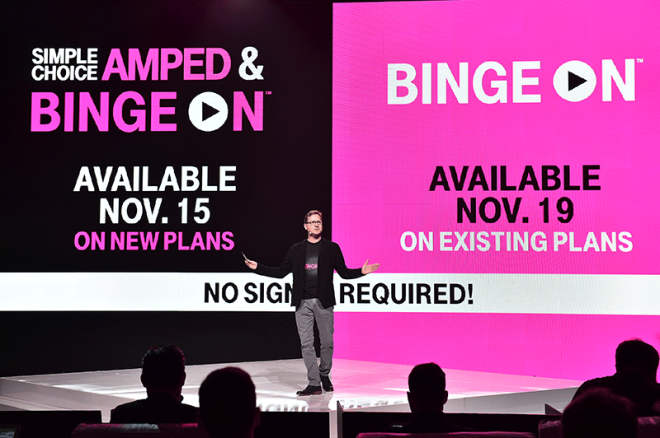T-Mobile ‘dumbfounded’ by YouTube’s stance toward Binge On
T-Mobile recently responded to YouTube’s criticism of Binge On, saying that calling what the service does “throttling” is misleading. Fast-forward to today and some T-Mo executives speaking at an investor conference took the opportunity to defend Binge On once again.
T-Mobile COO Mike Sievert responded to YouTube’s complaints by saying that T-Mo is “dumbfounded” about why YouTube might thing that enabling Binge On is a bad thing, adding that YouTube hasn’t yet done the work to become one of Binge On’s free streaming services. The T-Mo execs also said that YouTube’s stance on Binge On is “absurd.” YouTube hasn’t responded to these statements.
Meanwhile, the EFF touched a bit more on its recent report that called Binge On “just throttling.” Jeremy Gillula, the EFF technologist that actually wrote the group’s report on Binge On, explained that the EFF is unhappy that T-Mobile’s service is opt-out rather than opt-in. “We aren’t big fans of the way that T-Mobile has gone about it.”
As with the EFF, it seems that YouTube is unhappy with the way that T-Mobile implemented Binge On, not necessarily the service itself. YouTube previously said that “reducing data charges can be good for users, but it doesn’t justify throttling all video services, especially without explicit user consent.” While T-Mo does alert users that Binge On will be automatically enabled on its website, some folks simply may not know that that’s the case, either because they’re not as technologically inclined as others or for some other reason. And considering the statements from both the EFF and YouTube, it seems like a lot of this brouhaha surrounding Binge On could’ve been avoided if T-Mobile had made Binge On opt-in rather than automatically enabling it on customers’ accounts.
Source: Wall Street Journal

